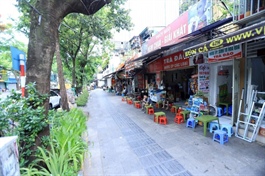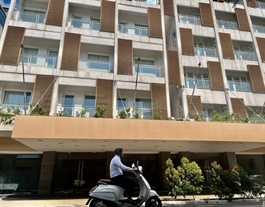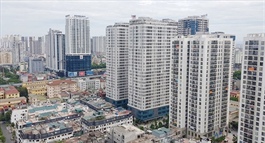62 real estate projects in Ho Chi Minh City fail housing standards
62 real estate projects in Ho Chi Minh City fail housing standards
In Ho Chi Minh City, 62 real estate developments have been reportedly flagged by the Department of Planning and Investment (DPI) for failing to meet the criteria set for commercial housing projects. The revelation has triggered investor anxiety, particularly among those who have already staked significant financial resources in these projects. Some of the developments have been occupied for years, despite not satisfying requisite standards.

A close source told VIR that the non-compliant projects are primarily at fault due to insufficient land ownership as specified by Clause 1, Article 23 of the 2014 Law on Housing.
This law was amended and supplemented in 2022, and includes laws on public investment, private partnerships, housing, bidding, and civil judgment execution.
Among the listed projects are numerous ones from prominent real estate moguls in southern Vietnam. These include:
Nam Khang's 6.5 hectare (ha) low-rise housing area,
Sila Thao Dien's apartments for sale by Icon JSC,
Thoi An housing area (7.12 ha) by Sang An
Saigon River Apartments (2.83 ha) by Hiep Phuc Real Estate JSC,
Linh Trung residential area (2.71 ha) by Minh Long East Saigon JSC,
Truong Phuoc Loc complex (7.1 ha) by Truong Phat Loc Real Estate JSC,
An Phu housing project (6.1 ha) by Thu Thiem Real Estate JSC,
Binh Tri Dong B Ward residential area (2.5 ha) in Binh Tan district by Hoa Lam Development JSC.
The 62 projects are among 117 application files requesting approval for investment policies in Ho Chi Minh City that the DPI is currently processing. The reporting of these projects is in line with the directive of the People's Committee of Ho Chi Minh City, dated June 1, 2023.
The concern is that many of these projects, despite still being in the preliminary stages of investment approval, have already been subdivided and sold. A case in point is the low-rise Nam Khang housing project, which has failed to meet commercial housing requirements due to its inability to acquire enough residential land and its entanglement with issues of land-use right transfers and agricultural land leasing.
Complications began in November 2018 when the Nam Khang project signed a cooperative investment contract with Mayland Real Estate Investment JSC. Despite the agreement stipulating that Nam Khang was to fulfil all legal procedures for the project, with Mayland providing funds and product distribution, the project remains unbuilt. Over 147 customers have deposited more than VND 172 billion for lots that were never delivered, sparking widespread public unrest.
Mayland and Nam Khang have since locked horns over contract breaches. Nam Khang has accused Mayland of raising capital and signing contracts beyond their initial agreement, despite repeated pleas to cease such activities. In response, Mayland has alleged that Nam Khang failed to comply with the project's legal formalities, constituting a severe contract violation.
Meanwhile, the Saigon Riverside Villa project, helmed by Saigon Garden Real Estate JSC, has caught the attention of the DPI due to the investor's inability to meet commercial housing project requirements. Despite these issues, various reputable real estate brokerages continue to market the project, purporting that premium garden villas have been available since August 2019.
Another example is the Doxaco Housing Project, with the developer failing to secure residential land, potentially leaving hundreds of customers in a precarious situation.
The DPI has recommended Ho Chi Minh City People's Committee to reject these proposals, leaving investors who have committed billions to these developments in jeopardy.
The DPI has also highlighted contradictions within the list of 62 projects that do not meet the conditions for investment approval according to the Law on Housing's restrictions on non-residential and other types of land. Some critics have pointed to a discrepancy in the 2014 Land Law and Central Executive Committee's Resolution No.18-NQ/TW that permits businesses to purchase all types of land, including agricultural land, for project development, as long as it aligns with planning.
Beyond the aforementioned 62 projects, the DPI has reported that 55 more projects are under review for investment approval, some of which are embroiled in legal complexities or under official inspection.
In response to these complications, the DPI has urged investors to complete any missing documentation and recommends the People's Committee to guide the relevant departments to resolve each project's issues.
























